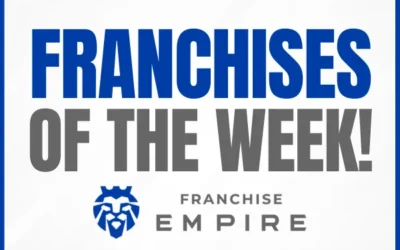Table of Contents
Peets Coffee Franchise Costs & Profits (2024): Key Details About Licensing Opportunities
Quick Summary
Peets Coffee Franchise, founded in Berkeley, California, in 1966, has a rich history of innovation and influence in the coffee industry. Initially focused on selling roasted coffee beans and tea, the brand has grown into a household name known for its dark Arabica coffee and unique craft style.
Peet’s founder, Alfred Peet, introduced high-quality coffee to American consumers, influencing competitors like Starbucks in its early days. Although owned by Starbucks since 2012, Peet’s has retained its distinct identity, blending its nearly 60-year history with modern innovations.
Key Takeaways
-
Peets Coffee Franchise does not offer traditional franchising; instead, it operates through corporate ownership and licensed partnerships.
-
There are 339 Peet’s Coffee locations in the U.S., primarily in California, with additional products available in over 14,000 grocery stores nationwide.
-
Licensed partners benefit from flexible business models, using Peet’s branding and products while paying royalty fees.
-
Peet’s Coffee experienced a 12.6% increase in annual sales from 2020 to 2021, showcasing strong growth and investment potential.
Is Peet’s Coffee a Franchise?
No, Peet’s Coffee does not offer traditional franchise agreements. Instead, it operates through corporate ownership and licensed partnerships with independent businesses.
Licensed Partnerships
Through licensing agreements, entrepreneurs can:
-
Utilize the Peet’s Coffee brand and products.
-
Operate with greater flexibility compared to a franchise model.
-
Pay royalty fees based on gross sales rather than adhere to a strict business plan.
These partnerships offer opportunities for coffee shop owners to leverage Peet’s reputation and product quality while maintaining operational independence.
How Many Peet’s Coffee Locations Are There?
As of May 2024, Peet’s Coffee operates 339 locations across the United States, with the majority in California. Non-traditional retail environments, such as universities and airports, further extend its presence.
Global Reach
Peet’s expanded to China in 2017, where it now operates over 100 stores. Additionally, its products are available in more than 14,000 grocery stores nationwide, significantly increasing brand visibility.
How Does the Peet’s Coffee Licensed Partnership Program Work?
Peet’s Coffee’s licensed partnership program provides an alternative to franchising, allowing independent coffee shop owners to:
-
Sell Peet’s products.
-
Use the Peet’s Coffee name.
-
Customize their operations without following a rigid business model.
Key Features of Licensing Agreements:
-
Royalty Fees: Partners pay royalties based on gross sales.
-
Flexibility: Investment costs and operational guidelines vary, offering tailored opportunities for different business types.
-
Collaboration Opportunities: Partners can suggest new products for Peet’s consideration, fostering innovation.
What Makes Peet’s Coffee Unique Among Coffee Brands?
Peet’s Coffee stands out for its commitment to quality and innovation:
-
Signature Dark Roast: A hallmark of Peet’s since its founding.
-
Creative Marketing: Campaigns like the “Disloyalty Program” in 2023, which accepted competitor reward points, highlight its innovative spirit.
-
Industry Contributions: Peet’s donated $25,000 to UC Davis to establish the Coffee Center, the first academic hub dedicated to coffee research.
Is Peet’s Coffee a Profitable Business for Investing?
While Peet’s does not offer franchises, its licensing program and corporate growth indicate strong investment potential:
-
Annual Sales Growth: Systemwide sales increased from $893.52 million in 2020 to $962.82 million in 2021, reflecting a 12.6% growth rate.
-
Market Presence: Peet’s combines brick-and-mortar stores with retail product availability, ensuring steady revenue streams.
For licensed partners, the combination of a trusted brand and flexible business opportunities offers a compelling investment case.
Pros and Cons of Partnering with Peet’s Coffee
Pros:
-
Strong brand reputation with nearly 60 years of history.
-
Flexible licensing agreements tailored to independent businesses.
-
Expansive market reach through grocery stores and non-traditional retail locations.
Cons:
-
Lack of traditional franchise structure may require additional entrepreneurial initiative.
-
Royalty fees and varying investment costs can complicate budgeting.
-
Limited geographic presence outside California.
Why Choose Peet’s Coffee?
Peet’s Coffee offers a unique opportunity for entrepreneurs through its licensed partnership program. By combining high-quality products, innovative marketing, and flexible business models, Peet’s stands out as a leader in the specialty coffee industry.
Interested in exploring more franchise opportunities? Check out our guide to 5 Low-Cost Franchises That Make $1,000,000 and discover how to maximize your investment potential!
Here are 5 Low Cost Franchises that make $1,000,000 (Backed by Data)
Subscribe to the Franchise Empire Newsletter for the latest Franchise news & updates
Franchises of the Week: Franchise shows $200k in Net Income* and Resale with $6 Million in Last Year Sales!**
Hey Empire Builders, Welcome to this week’s Franchise Empire Newsletter, where we share specific franchise opportunities that we think are...
Franchises of the Week: Average Sales of $8.9 Million* & Florida Resale with $2.1 Million** in sales
Hey Empire Builders, Welcome to this week’s Franchise Empire Newsletter, where we share specific franchise opportunities that we think are...
Franchises of the Week: Franchise showing $314,000* in net income & Recession Proof resale with $742,000** of sales
Hey Empire Builders, Welcome to this week’s Franchise Empire Newsletter, where we share specific franchise opportunities that we think are...
21-year-old Resale doing $1.3M* in sales & Franchise showing $11M** in sales
Hey Empire Builders, Welcome to this week’s Franchise Empire Newsletter, where we share specific franchise opportunities that we think are...
Recurring Revenue Franchise showing $1.1M in sales*
Hey Empire Builders, Welcome to this week’s Franchise Empire Newsletter, where we share specific franchise opportunities that we think are...
Interesting Franchise making $1.7M* in sales & RARE $8M Resale Opportunity
Hey Empire Builders, Welcome to this week’s Franchise Empire Newsletter, where we share specific franchise opportunities that we think are...


